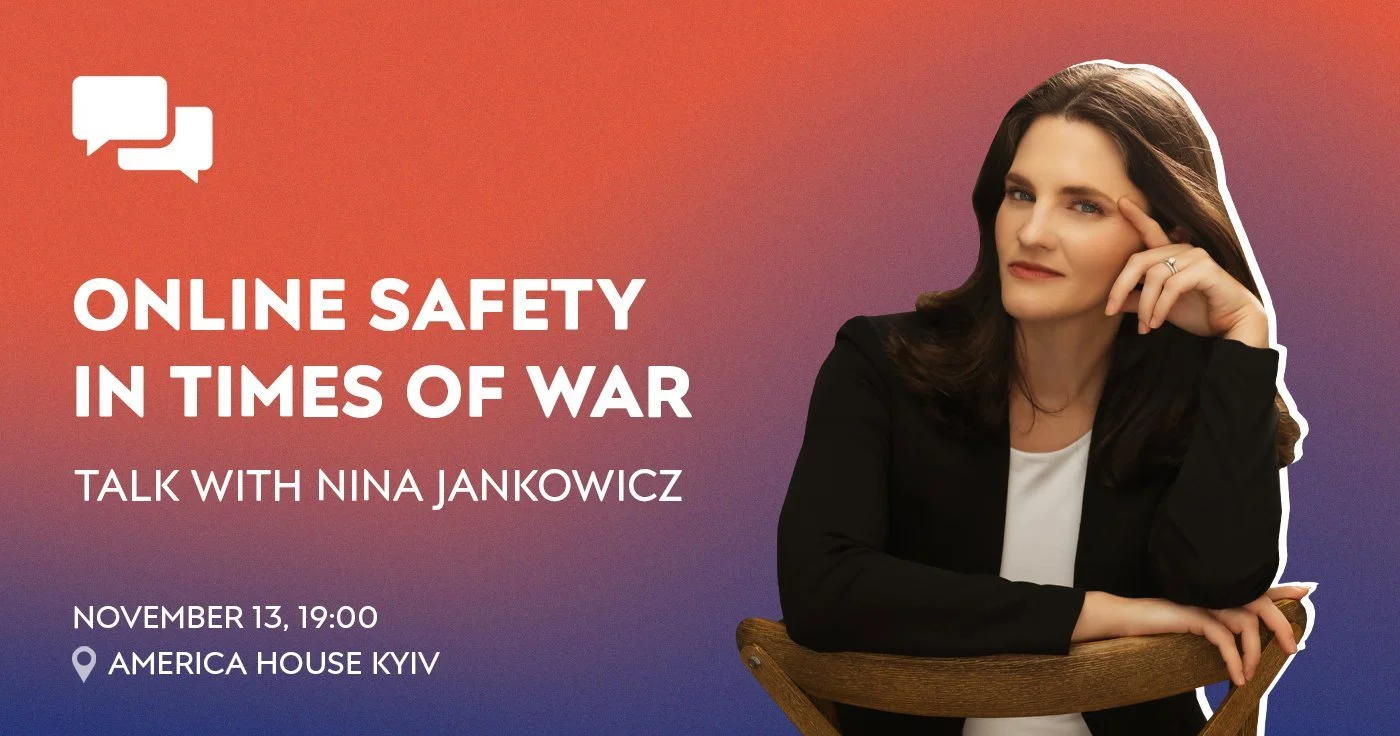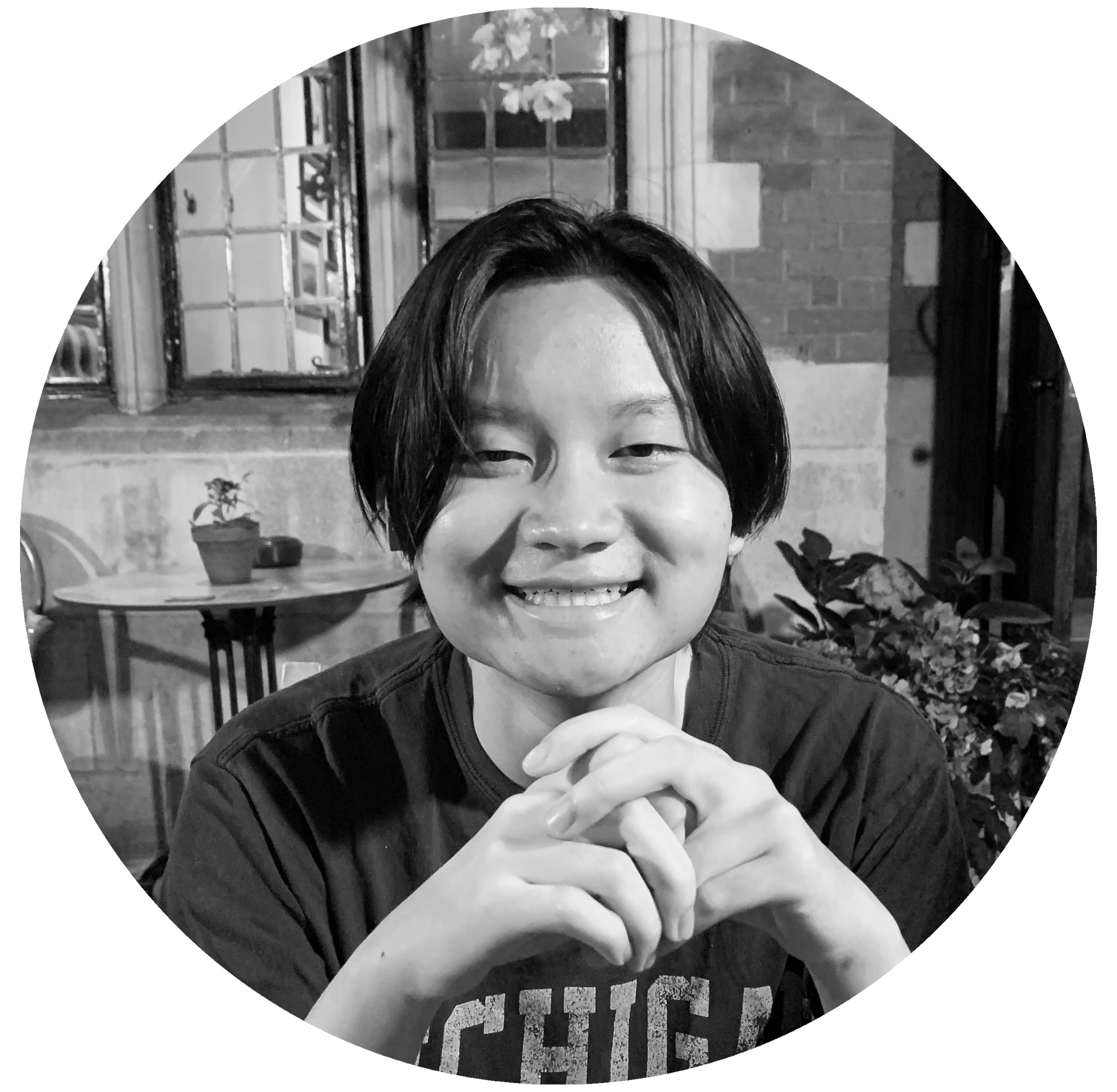Nina Jankowicz on Media Literacy and Countering Disinformation
Nina Jankowicz is a democracy and disinformation expert and Vice President, U.S., of the Centre for Information Resilience (CIR), a non-profit that combats disinformation, documents human rights abuses, and counters online harms against women and minorities through open source research. CIR finds evidence of these harms on social media , verifies it, and archives it in a database for future use, including for legal procedures. CIR also manages the Eyes on Russia mapping project which locates and verifies occurrences and information connected to the Russian invasion of Ukraine. Jankowicz, along with several colleagues, recently visited America House Kyiv to talk about ways to combat disinformation and how to stay safe online. Summarized below, are the major takeaways from their discussion.
Protecting Yourself From Online Threats:
Online abuse can look like disinformation attacks and the targeting of individuals. For instance, Russia perpetrated a disinformation campaign to discredit and defame a Ukrainian member of parliament. The campaign sexualized her, claiming that she would run naked down the streets of Kyiv when Ukraine lost major battles in the war.
Jankowicz, herself, has also fallen victim to online attacks. She briefly served in the Biden Administration, working in defense of homeland security to counter disinformation. Right-leaning people in opposition to her position came after Jancowicz and her family, doxxing her. For her own protection, she was advised to leave her home by a private consultant.
Jankowicz advocates for protecting your own digital presence by using basic security measures including having complex passwords, password managers (to access passwords), and multi-factor authentication which offers you multiple barriers of defense online. In multi-factor authentication, the password is the first defense. The second is a security key you can insert into your computer or phone. It may also be an authenticator app which can protect your information even if someone has access to your password. These defense mechanisms are especially significant for those who work in politics, journalists, and activists.
Dealing with Trolls Online:
In order to combat hate online, act like social media is your kingdom and you are the ruler.
Use block and mute, remove followers
Report content that may be against terms of service on a social media platform
If you are undergoing heavy abuse, have someone else do the reporting
Call abuse out when you see it by reporting it and/or showing support to the person being abused
Continue using your voice to speak up
How to Mitigate Vicarious Trauma:
Ukrainians can experience vicarious trauma (undergoing trauma secondhand such as through videos or images) and double exposure to graphic content because it is the reality for many on a daily basis and also documented online. Reducing traumatic harm can be done in a few ways:
Define your own boundary for the amount of content you can consume and learn to recognize signs you have reached your limit such as irritability and trouble sleeping
Use software tools to blur images and leech color, scroll past images, identify content of videos based on thumbnails, disable autoplay for videos, turn off sound on videos
Think about how necessary your social media usage is and make the active choice to engage or not engage in material so you are prepared to see it.
How to Improve Investigative Skills or Get Involved in Open Source Investigation:
Find digital content and practice verifying it, putting your findings online means that they may be helpful to organizations and legal groups
Know your journalistic and investigative limits and do not overwhelm yourself with content
Live Questions Answered During Talk:
Question 1: Social media is curated so you only see what you support, how do you show information to the people who need to see it or to change their minds?
Answer:
Use social media, mainstream media, and partner organizations to distribute this information, establish partnerships with influencers who can share with their audiences
Ensure information is communicated in the same language as the viewer
Share information with researchers around the globe
Question 2: Have you been able to track the evolution of Russian disinformation tactics from 2013 onward/what has this change been?
Answer: From 2013 through the 2016 election, Russia has had a more overt disinformation presence through such methods as the use of bots and trolls online and actors pretending to be Ukrainians on Russian television. The 2016 election sparked awareness of disinformation campaigns among the public and social media companies. Russia has since acted more covertly:
It shares information with travelers or people who are sympathetic, including those associated with far right or left media outlets who could be perceived as simply expressing their personal opinions when spreading disinformation.
Russia works to rewrite history by making such claims as Ukraine is not a real country and lacks a real language.
Russia also uses its cultural influence, extending its power in person through institutions like the Russian Orthodox Church.
Russia is skilled at finding and exploiting the weaknesses of the West by sharing disinformation in countries that are part of the global south (nations not aligned with the West or Russia and China).
Vocabulary List:
Disinformation (noun): Information known to be untrue and meant to deceive
Mitigate (verb): To reduce, lessen
Doxxing (gerund): Publicizing identifying information about a person, especially digitally
Authentication (noun): Verification of identity
Thumbnails (noun): Pictures introducing the content of videos
Curate (verb): To personalize
Covertly (adverb): Hidden, not obvious
Overt (adjective): Obvious, noticeable
Exploiting (gerund): Unfairly taking advantage
ABOUT THE AUTHOR
Phoebe McChesney is a student at Oberlin College in the United States, majoring in Politics. She has interned in the U.S. House of Representatives and served as a Page in the U.S. Senate. Phoebe would love to work in Congress, with a federal agency, or on foreign policy and international relations one day. She is a blogger for her college and is interested in America House Kyiv’s Ukraine-American work.








